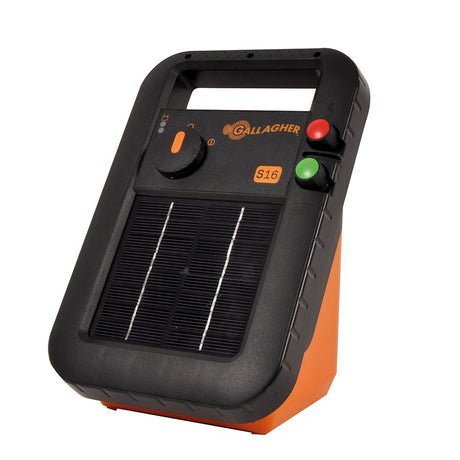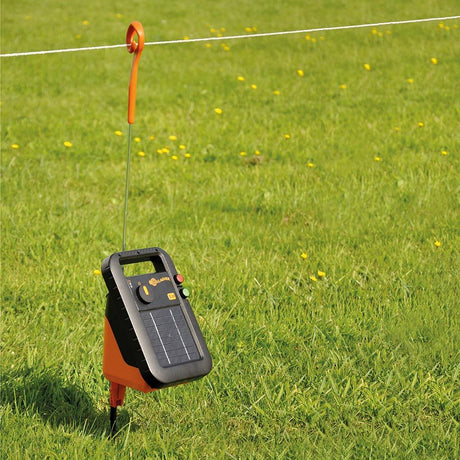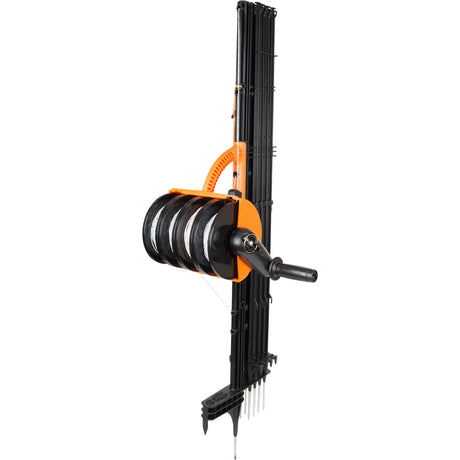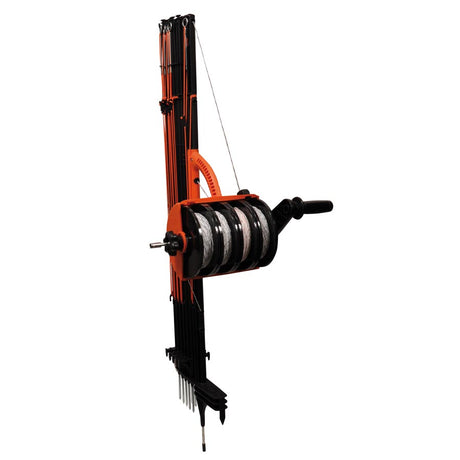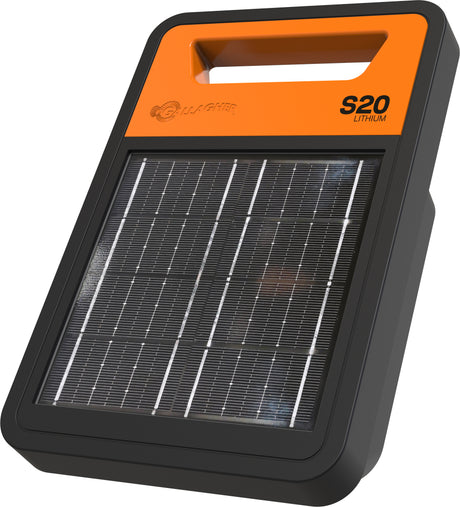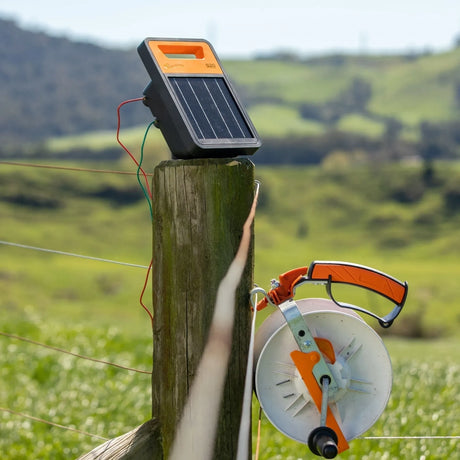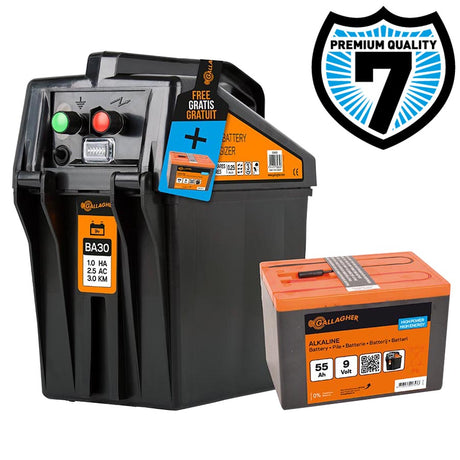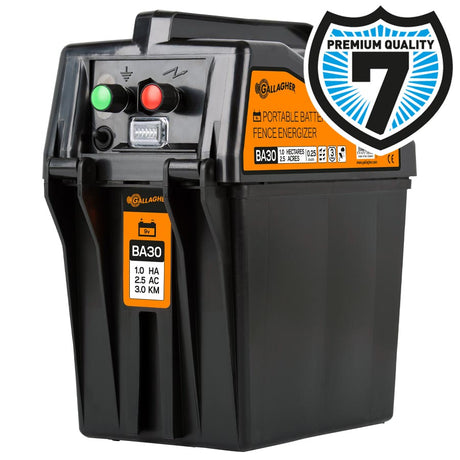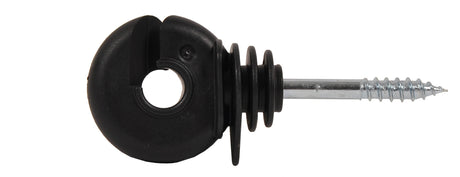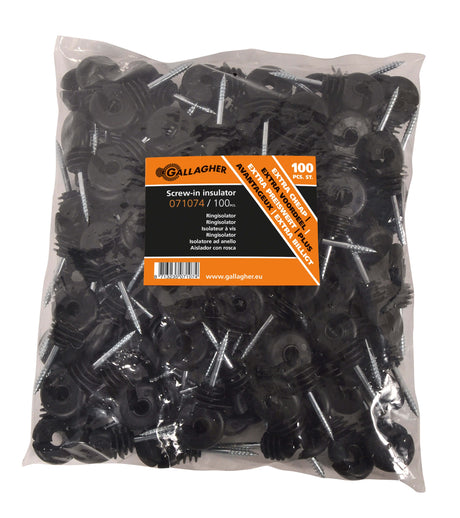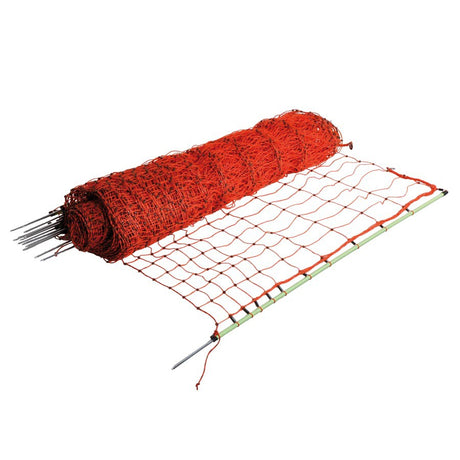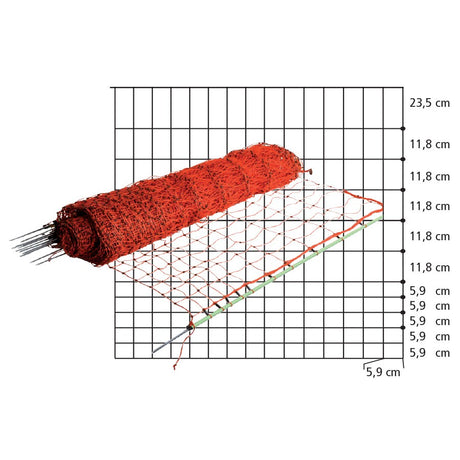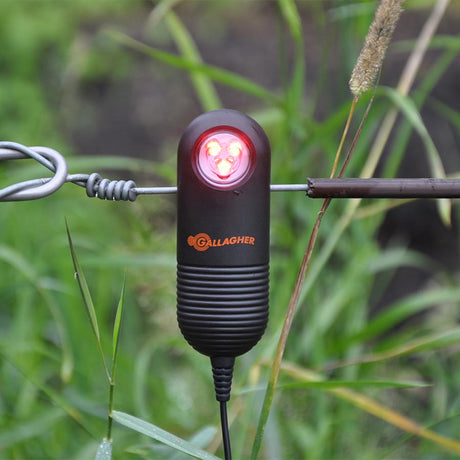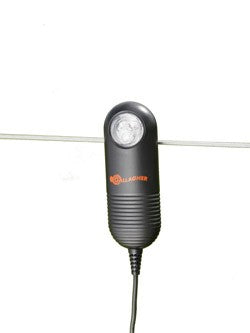When you're shopping for electric fencing gear in the UK, two names come up time and again: Rutland and Agrifence. Both are well-established, widely available, and popular with farmers, horse owners, and smallholders. But which brand should you trust for your posts, tape, and accessories?
In this article, we'll take a closer look at Rutland and Agrifence, compare their strengths and weaknesses, and share where each fits best. We'll also explain why many UK farmers eventually step up to Gallagher or Hotline once they've weighed long-term costs.
If you want to know more then read our complete UK guide to electric fence posts
Rutland: A Trusted Mid-Market Brand
Rutland is a long-standing UK name in electric fencing. They sit firmly in the mid-range market, offering wooden strainers, plastic posts, energisers, and accessories.
Strengths of Rutland:
- Reliable quality, better than no-name imports.
- Solid range of products, from posts to energisers.
- Widely available at Mole Valley, Wynnstay, and other UK agri-suppliers.
- Good customer support and clear instructions.
Weaknesses of Rutland:
- Plastic posts are not as heavy-duty as Gallagher equivalents.
- Energiser range is decent but not cutting-edge.
- Price sometimes overlaps with premium brands, without the same durability.
Best for: Smallholders or farmers who want dependable mid-priced kit without going for premium brands.
Agrifence: The Budget-Friendly Option
Agrifence is the go-to brand for low-cost electric fencing supplies in the UK. Their plastic posts and netting kits are cheap and easy to get hold of, making them popular with hobby farmers, allotment holders, and poultry keepers.
Strengths of Agrifence:
- Very affordable, often half the price of premium brands.
- Great for short-term or light-duty fencing.
- Poultry netting kits are especially popular.
- Good for beginners who want to "try electric fencing" without big costs.
Weaknesses of Agrifence:
- Plastic posts snap easily in frost or under stock pressure.
- Shorter lifespan — often 2–4 years before replacements needed.
- Less robust for cattle or horses.
- Accessories (like insulators) can crack under UV exposure.
Best for: Poultry keepers, gardeners, or smallholders on a tight budget.
Rutland vs Agrifence: Head-to-Head
Posts
- Rutland: More robust, better suited to cattle and sheep runs.
- Agrifence: Cheaper, lighter, best for poultry and gardens.
Durability
- Rutland: Mid-range lifespan (5–10 years for timber, 3–5 years for plastic).
- Agrifence: Shorter lifespan (2–4 years).
Cost
- Rutland posts: £3–£6 plastic, £7–£12 wooden.
- Agrifence posts: £1.50–£3.50 plastic, £5–£9 wooden.
Availability
- Rutland: Widely stocked in agricultural suppliers.
- Agrifence: Common in equestrian and smallholder stores, online.
Where Each Brand Fits
- Choose Rutland if you want dependable posts and accessories for everyday farm use without breaking the bank.
- Choose Agrifence if you're on a budget, fencing poultry, or setting up a temporary system.
Both brands do their job — but neither is the strongest option if you want a fence to last 10+ years.
Why Many Farmers Step Up to Gallagher or Hotline
Here's the honest truth: both Rutland and Agrifence have their place. But when farmers or horse owners get tired of replacing posts every few years, they often turn to Gallagher or Hotline.
- Gallagher posts are thicker, UV-stabilised, and far stronger than Rutland or Agrifence. They cost more, but last 2–3 times longer.
- Hotline timber posts are treated for longevity and provide real strength at corners and gateways, making them a better permanent solution.
Over a decade, Gallagher or Hotline gear usually works out cheaper than repeated replacements — and far less hassle.
Final Word: Good vs Better
Rutland and Agrifence are good, solid UK brands. Rutland suits farmers who want mid-range dependability, while Agrifence is perfect for those starting out or keeping poultry on a budget.
But if you want fewer breakages, longer lifespan, and peace of mind, Gallagher and Hotline posts are worth the extra upfront spend. They're the brands UK farmers trust when they're tired of false economies.

